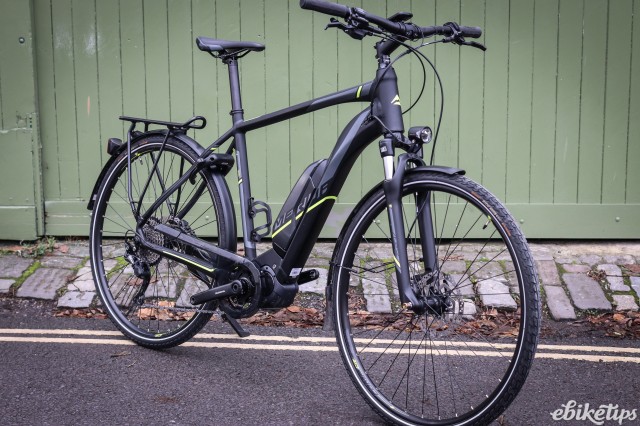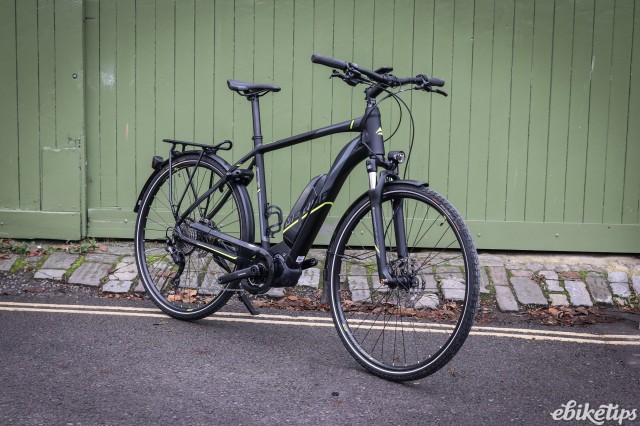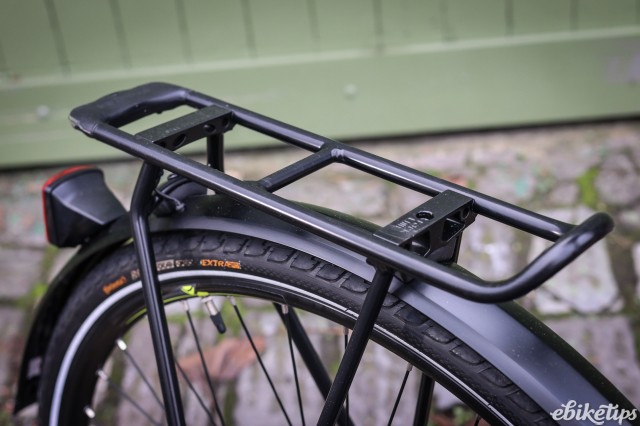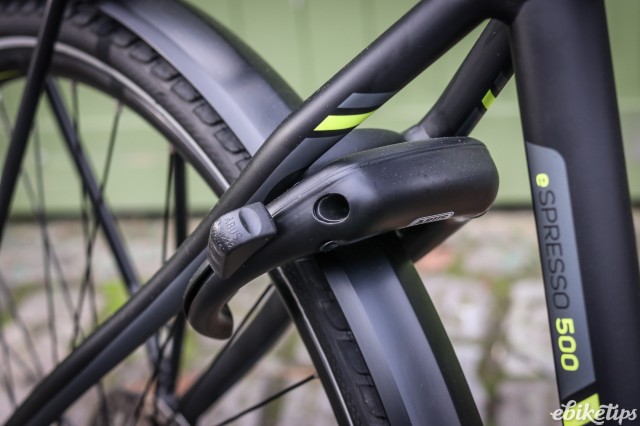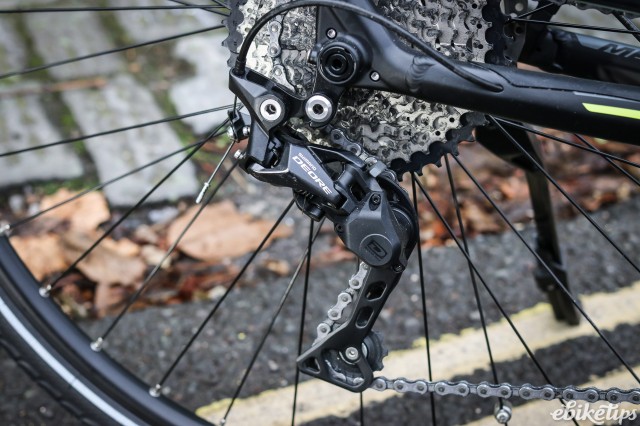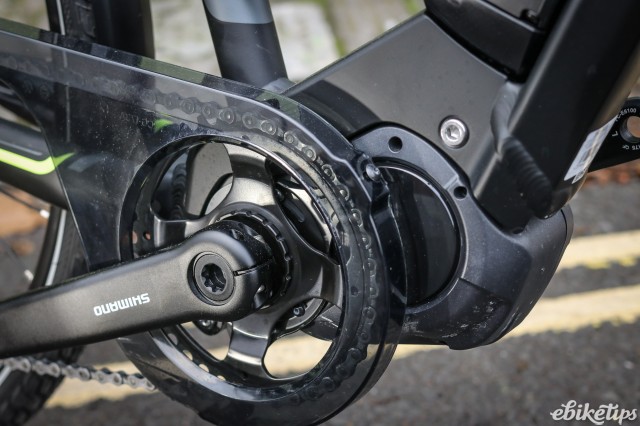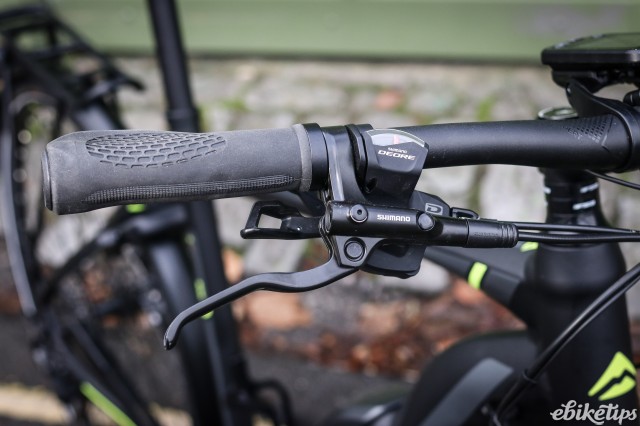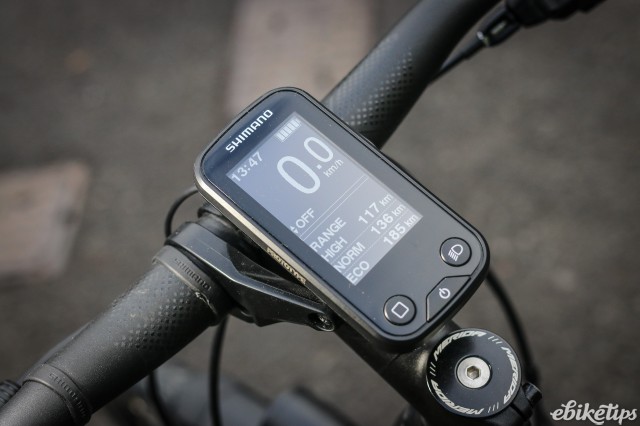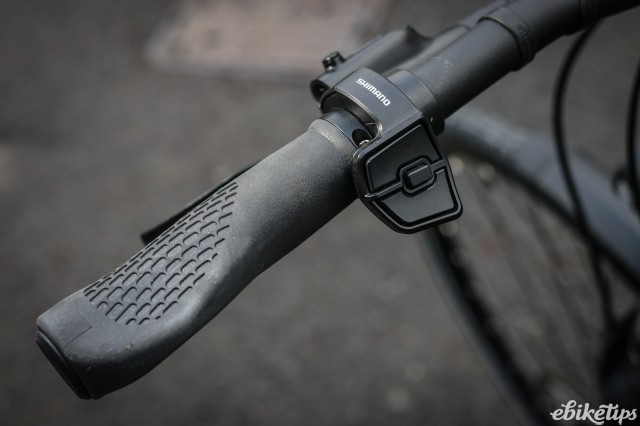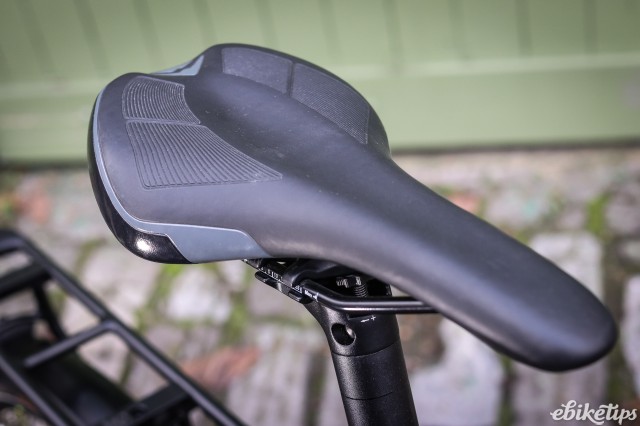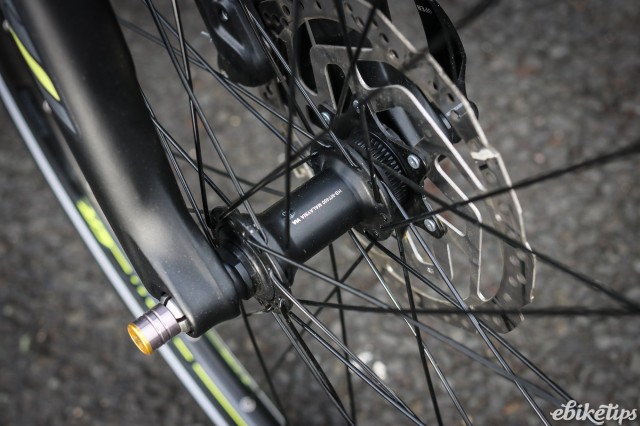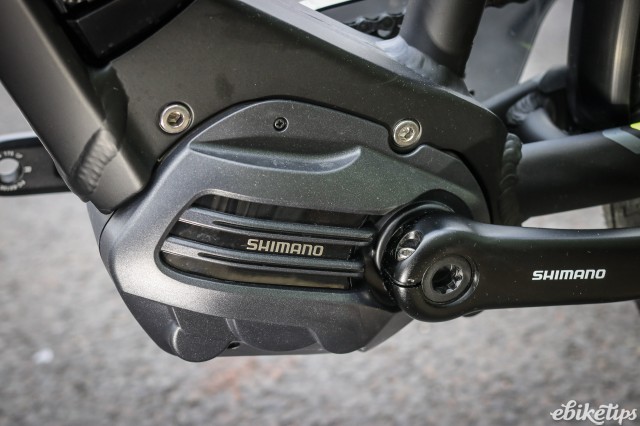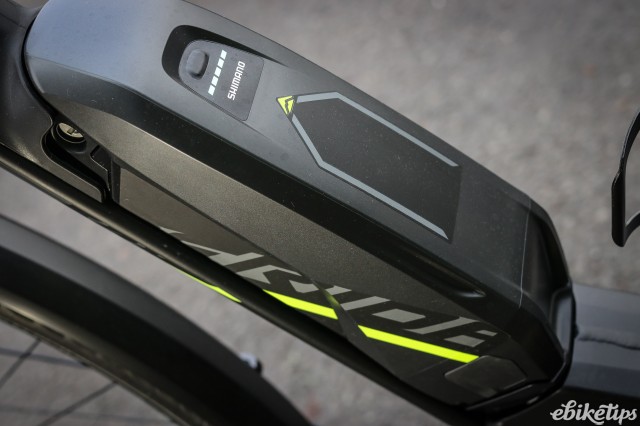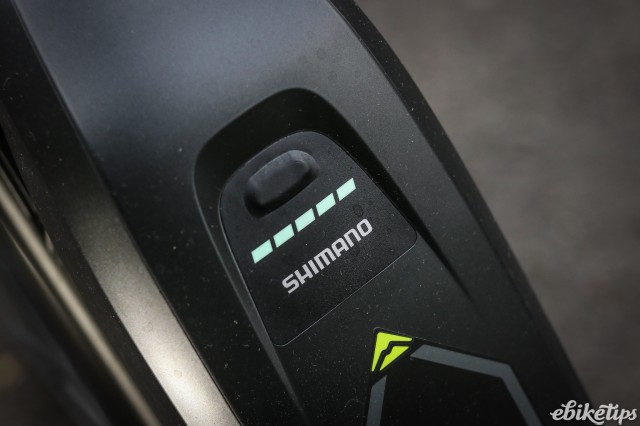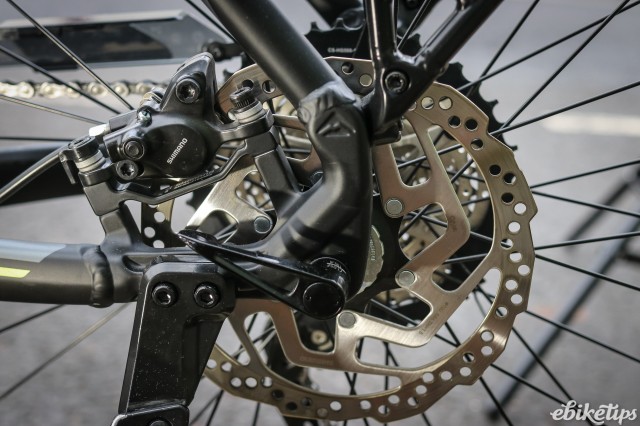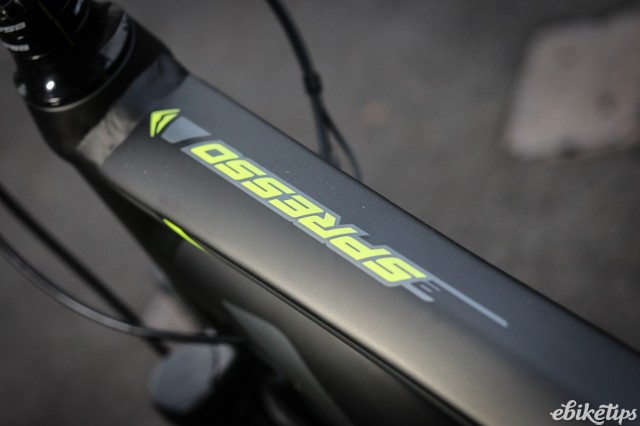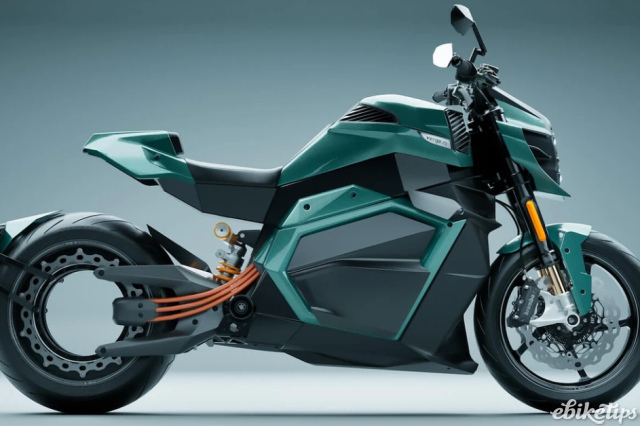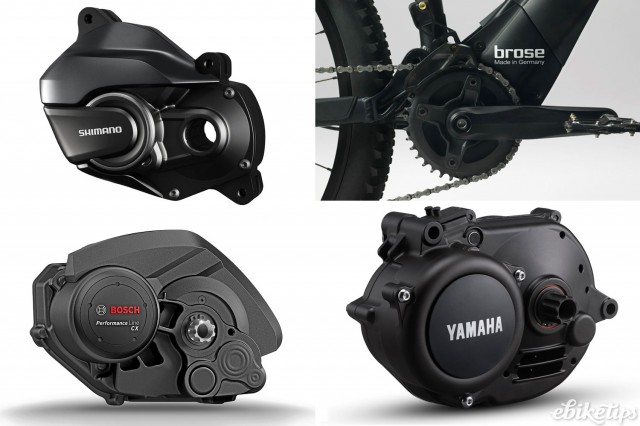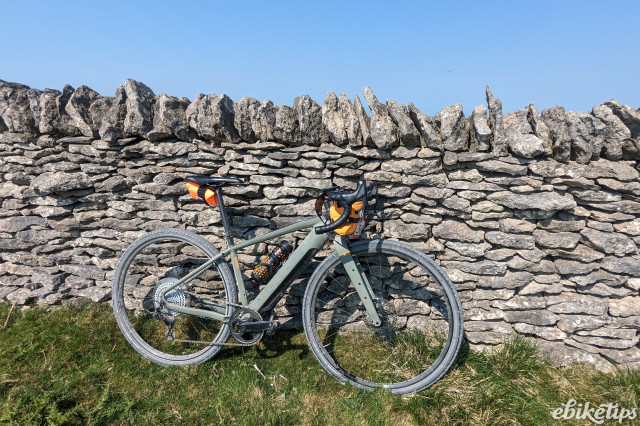Merida Espresso / -L 500 EQ
Overview
- Solid motor system
- Great overall quality
- Practicality
- Gearing a little odd
- Fork not good spec for the money
Merida’s Espresso / -L 500 EQ e-bike (henceforth to be known as the Espresso) is an extremely well-made urban commuter e-bike. With the might of one of the biggest bike makers in the world behind it, it’s a safe bet as a reliable personal e-bike.
When we announced that the Espresso had landed in the eBikeTips office, we explained that Merida – being Merida – had a long list of builds centred around the concept to suit many budgets. This, being the mid-range version, features Shimano’s E6100 Steps motor married to the E8010 battery pack.
A mid-range motor with a battery from the top echelons of Shimano’s range yields impressive battery life. I’ve been using it for every 3-8km commute that I’ve had to make around the city of Bath over the past couple of weeks, and with maybe 70% of that covered on flat(ish) roads.
Naturally, Bath’s steep hills always have it in for battery life, and here is no exception. However, given the 504wh capacity of the unit, you can make a week’s worth of trips up and down any of the city’s steep hills with the Steps system set to ‘high’ without needing to recharge before the working week is done.
When you put effort into the pedals and the Espresso is set to high mode, the 60Nm motor itself really kicks forward when the speed drops below that magic 25km/h barrier, and continues to punch consistently when you’re looking at around 12-14% grades too. I usually reserved the maximum assistance for the steep climbs, with a more gentle push available through the normal or eco settings.
When the power is off the bike pedals smoothly, with very little sense that you’re also pedalling against the motor gubbins in the bottom bracket area. I often rode the Espresso at 30km/h or more, and never felt like the pedalling action was unnatural or stunted. Yes, you have to grind a 23.6kg bike around, but actually it never feels quite that heavy.
The Steps screen is easy to read, while it also offers plenty of battery life and trip readout data. The assistance switches mounted near the left hand are reachable with your thumb from the bars, and are easy to use.
The Shimano Deore gearing is tried and tested, and offers a good range of 10 speeds to tackle hills. The gearing is suitably spaced out, although in a small quirk I could never quite find a happy cadence on the flat when allowing myself to sit on the 25km/h assistance limit. The motor is very good at giving consistent assistance, but the gearing itself left me constantly switching between one sprocket and another as I’d struggle to decide which cadence I wanted.
It’s one downside of having fairly gappy spacing between gears – there are always going to be little ‘dead zones’ where you can’t quite find the perfect solution for you. I therefore rode the bike accordingly at either 22-23km/h to sit happily on the lower gear, or put some extra effort in to justify the bigger gear.
The frame is clearly high quality, using Merida’s established frame-building know-how to arrive at a sturdy alloy product with a sat-up position. It handles well in the urban environment, with the very light steering actually a bit of a surprise when I first rode it.
It took a while to get used to, as it feels sharper even than my road bike, but once acclimatised it’s no problem, and actually a boon when weaving about town. It’s worth noting at this point that the handling should be common among both of the frame types on offer: standard and step-through.
Heading downhill the steering doesn’t get twitchy despite the lightness, and Shimano’s hydraulic MT200 disc stoppers are more than up to the task for day to day use and emergency stopping.
That’s not to say comfort has been neglected. The 660mm-wide handlebars provide a comfortable spot to lean on with ergonomic bar ends, and I liked the Merida Comfort saddle too. Most of the bike's comfort comes from simple coil-sprung Suntour forks (with 63mm of travel) and the deflection in the 42mm Continental Ride Tour tyres. The forks are pretty ordinary, especially on a bike at this price, feeling underdamped and a bit clunky. Overall though there's more than enough comfort for where this bike is designed to go. The tyres are nice and grippy in all conditions, and are sturdy enough thanks to the puncture protection belt inside.
The Espresso is practical too. The shelf rack on the back might be a little smaller than some would like, but it was enough to carry any spare workday luggage that I ever needed to take with me. Bigger panniers will fit too if you need to turn the Espresso into a cargo bike. I like the neat and tidy integrated rear light that shines in a strip from the rack itself.
The supplied mudguards (you can also have this bike without them) are nicely integrated, and the front light offers good visibility too – certainly, I never felt the need to install a second high-powered light, which speaks volumes. The rear wheel lock from Abus is a plus, and the stand underneath does what it says on the tin.
Put all this together, and Merida’s Espresso / -L 500 EQ is a nicely rounded, good-handling, comfortable urban commuter e-bike. The motor is as powerful as many are ever going to need, and it’s very easy bike to get along with around town and for slightly longer stretches too. At £2,650, it’s certainly a hefty investment, but there’s bags of quality to go with it here, as well as a strong reputation from Merida itself.
1 comments

I bought one of these Espresso after reading you article and I must say its a brilliant all round Ebike. I have changed the tyres to a more robust, country, puncture resistant type and I love this bike! I understand your point about the gears and finding the right cadence but it's not a racing bike, its for plodding along so chill out! Two thing though, this bike will ride up the steepest hill with ease and yet you can ride it with ease without any battery assistance.
